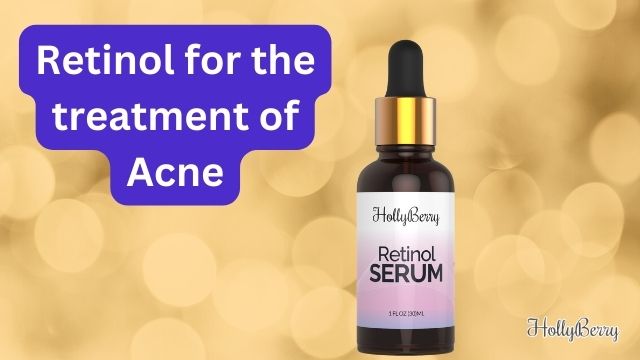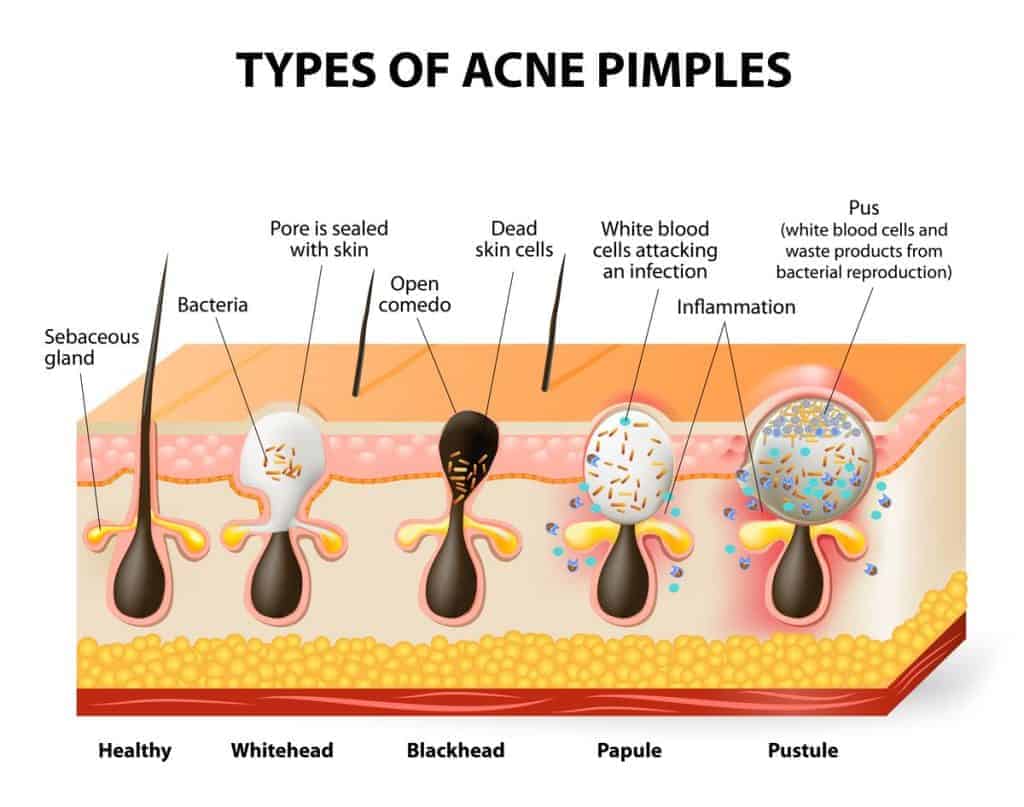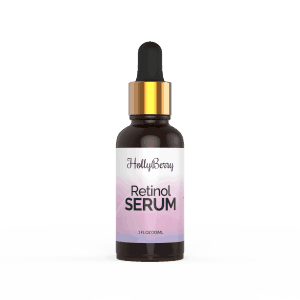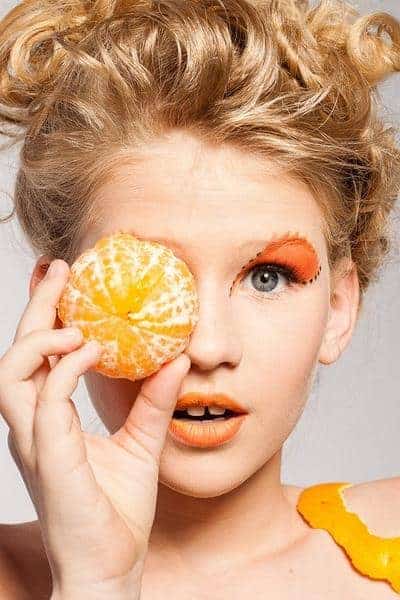
Using Retinol for the treatment of Acne is a big thing
Knowledge is power when it comes to knowledge of proper skin care products that will keep your skin glowing, spotless, and clean.
This is why it is important to examine Retinol for acne treatment. As acne is a common skin condition that plagues kids and adults alike. Acne is known to affect at least 4 in every 5 people and over 85 percent of people in the U.S. between 11 to 30 years.
It is not particularly dangerous, but it tends to leave scars on the skin.
Types of Acne Scars that are most common
Acne mostly occurs in individuals during puberty, at which point the sebaceous glands are activated, but it can also occur at any age as a result of genetics, menstrual cycle, stress, climate and oil-based makeup used by the individual.
Retinol is derived from vitamin A, which is one of the most effective cures and prevention against acne working by preventing the plugging of follicles which is the major cause of acne.

Acne is known to be a skin condition involving the oil glands at the base of hair follicles. In other words, acne is an inflammatory skin condition occurring when pores in the skin where hair follicles are sighted are plugged with oil and dead skin cells.
When follicles get filled up, pimples are produced on the skin, and oil builds up under the skin.The plugged follicles in turn cause spots and pimples, especially on the neck, face, back, chest, and armpits. Follicles in the human skin connect the glands to the pores where the oil glands are situated.
Skin cells, hair, and sebum can clump together into a plug. The ache is also caused when a portion of the skin gets infected with bacteria and results in swelling. Some of the common symptoms of acne known include; uninflamed blackheads, large, tender bumps and pus-filled pimples.
CAUSES OF ACNE
Medications
Taking medications that contain androgen and lithium can be one of the causes of acne in an individual. This should be avoided in individuals taking medication for acne.
Greasy and oil-based cosmetics
Cosmetics that are greasy and oil-based tend to add oil to the skin. They also participate in the blocking of the pore spaces in the skin which may result in acne.
emotional stress
Studies have shown that stress is one of the major causes of acne in adults above puberty. it is also shown to worsen in individuals that already have them.
While there is no research that shows any obvious connection between stress in an individual and acne infection, research has shown that increased severity is associated with high-stress levels in certain conditions.
Hormonal factors
Hormonal activity, such as menstrual cycles and puberty, contributes majorly to the formation of acne on the skin. At this stage secretion of hormones are high and this is manifested in the form of acne on the skin of an individual.
Puberty
At puberty, there is an increment in the number of particular sex hormones called androgens in the body. This causes the follicle glands to grow larger and secrete oilier sebum. The blockage experienced from this will result in acne.
Genes
The presentation of acne in specific individuals can only be explained genetically. Severe acne may be associated with XYY syndrome as a scientist has discovered.
Infections
Scientists suspect that anaerobic bacteria contribute to acne infection, although their exact role in this infection is not fully understood. It is however unclear whether these undesirable bacteria evolve on the skin or are acquired, or possibly both depending on the person.
These strains have the capability of changing, perpetuating, or adapting to the abnormal cycle of swelling, oil production, and inadequate sloughing of dead skin cells from acne holes.
Indications of Acne
The appearance of acne varies with skin colour, however, typical features of acne include increased secretion of oily sebum by the skin (oily skin), micro comedones, comedones, papules, nodules (large papules), and pustules.
It may result in psychological and social problems such as anxiety, reduced self-esteem, dejection, and in extreme cases thoughts of suicide. Scarring on the skin of the victim is also a consequence of acne.
Acne scars are caused by swelling within the dermal layer of skin and affect about 95% of people with acne. The scar is created by abnormal healing following this dermal inflammation.
Common treatments for Acne
Managing acne may depend on how persistent and severe it is. Common treatments that are however used for acne include;
Diet
The role of diet in acne is still unclear, however, people who consume a diet with a good supply of vitamins A and E as well as zinc such as; carrots, sweet potatoes, winter squash, apricot, liver, cheese, etc.
Topical Antibiotics
Erythromycin and clindamycin are some of the Topical antibiotics that can be used to effectively treat. It increases the resistance of the skin to bacterial infections that will cause acne.
It is also important to note that topical antibiotics should not be used on their own, due to the risk of developing bacterial resistance. Instead, they work better when combined with benzoyl peroxide to reduce this risk and to improve results as they tackle different bacteria on the skin.
Tea-tree oil
In an article published in the Indian Journal of Dermatology, Venereology, and Leprology, an experiment was conducted on 60 patients with acne and the results of the study suggested that 5-percent tea-tree oil may help treat mild to moderate acne. We recommend this pure Tea tree oil, It has 1000s of great reviews. Find the reviews and latest price on Amazon here .
Tea
Polyphenols from tea including green tea is beneficial in reducing sebum manufactured by the body and treating acne. Tea also helps open up pore spaces in the skin, which is a means of preventing acne. there 1000s of positive reviews on Amazon. the latest price here.
Steroid Injections
Steroid injections are where to go for isolated, single large acne lesions such as cysts, which may occur on the skin. A small steroid is injected directly into the isolated spot, as they reduce swelling and dry out inflammatory acne on the skin.
It usually flattens within 48 hours after injection but in some cases, an indentation is behind the skin where the cyst once was and may cause skin thinning and also pigmentation change.
Moisturizers
Moisturizers are used by people using acne treatments such as isotretinoin to soothe the skin. It can also be used with aloe Vera for its soothing and possibly anti-inflammatory effect on the skin.
Spironolactone
Spironolactone is an oral medication initially made for blood pressure and heart failure but also seems to be effective against acne in female adults by acting on hormones in the skin.
When used with Polycystic Ovarian Syndrome (it has anti-androgen), Spironolactone lessens acne significantly by reducing the effects of blocking the male hormone testosterone and excessive production of oil.
It is a female-only oral medication that should be taken alongside a contraceptive pill as it can disrupt your menstrual cycle.
Over-The-Counter (OTC) medications
Over-The-Counter (OTC) medications, such as gels, lotions, soaps, pads, as well as creams can be used for treating mild acne. Alcohol-based gels tend to dry the skin and are better for individuals with oily skin.
OTC acne remedies may contain the following active ingredients;
Resorcinol (used for breaking down blackheads and whiteheads), Benzoyl peroxide (used for killing bacteria in the skin, slows the production of sebum, and accelerates the replacement of skin), Salicylic acid (assists the breakdown of blackheads and whiteheads and helps reduce inflammation and swelling), Retinol-A(helps unblock pores through cell turnover), Azelaic acid (strengthens cells that line the follicles, stops sebum eruptions, and reduces bacterial growth) and Sulphur.
Retinol for Acne treatment

When treating acne, you can do no wrong with Retinol. The group of medicines that the drug belongs to is known as retinoids.
Retino-A is the most generally used Tretinoin cream in India, usually prescribed for acne scar management, acne vulgaris, and skin damaged by the sun.
Tretinoin is however available as Retin-A and Retinol-A in other countries. Tretinoin is an acid form of Vitamin A that is known to work effectively against acne.
Retinol is prescribed mainly for acne treatment. A tiny amount of Retinol-A on the spot suppresses a cyst, minimizing the chances of scarring from a popped pimple.
It is approved in India, the United States, the UK, and Japan. It can be used by both women and men Retinol is available in concentrations – 0.025% up to 1%. You can go higher but I would not advise this.
Video by Dr. Pimple Popper University
The drug is very effective at treating acne and reducing the number of pimples that tend to develop while it is healing the pimples that have already developed on the skin.
Retinol-A works by binding to alpha, beta, and gamma retinoic acid receptors (RARs) thus activating them. If your dermatologist has prescribed you Retinol-A, this post will help you use it while keeping side effects and skin-irritation to the minimum. We recommend Retinol Serum. Find the latest price on our store here.

When is Retinol prescribed?
Acne vulgaris
Retinol is commonly used to treat and prevent pimples on the skin. It also reduces the occurrence of new pimple breakouts and promotes the healing of the skin.
Wrinkled and rough/mottled skin
Retinol is also used for the management of wrinkles, rough patches, and patchy skin colour associated with excess UV/sunlight exposure. It is mostly used in combination with other medicines to treat wrinkled and rough skin.
Side effects of using Retinol A
- It causes a tingling or burning sensation in the skin.
- It can cause skin irritation during usage.
- Red spots can sometimes be noticeable on the skin.
- In rare cases, blistering and peeling of the is reported
- It gives the skin a patchy appearance.
- In some cases, it is said to increase the sensitivity of some people to light. This is in rare cases.
In severe cases some of the following side effects are seen;
- Unusual bleeding or bruising.
- Dry mucous membrane.
- Coffee-coloured vomit is severe.
- Blood cell disorder.
- Difficulty in breathing.
- Hearing loss.
Direction on how to use Retinol
The first step is to wash the face with a gentle cleanser to remove dirt that may react with the product. Cetaphil Cleansing Lotion is a good cleanser to consider.
Wait for 15 to 20 minutes after washing the face in other to reduce the burning sensation that may occur.
Use half a pea-sized of RetinoL-A and form a very thin layer over your whole face. Avoid applying Retinol on any open cuts or wounds. Also, avoid applying Retinol-A around the eyes or on the eyelids. A mild eye cream will make a good alternative.
For beginners, it is better to start with the application once every 3 nights. Then slowly increase to using it every night as the burning sensation reduces. It is okay to skip a couple of nights in between.
For dry skin, gentle moisturizer could be used on top after application. During the day it is important to use a high-protection sunscreen. Note- When starting out, Retinol – A causes a burning sensation that reduces over time as the application is done.
Precautions to consider when using Retinol A
It is preferable to use Retinol-A at night. Any exfoliating toners, cleansers, and moisturizers, should not be used with Retinol-A, as it makes skin extremely sensitive to everything. Always use sunscreen during the day even if you use Retinol-A at night.
Be cautious of signs of hypopigmentation of the skin that is lighter coloured skin patches. Stop the use of the retina until hypopigmentation stops. Gentle moisturizer should be used to hide and heal the flaking as Retinol-A is known to cause excessive peeling on the skin.
Increase the usage of Retinol gradually, do not switch to a higher percentage before your skin can comfortably tolerate its strength. It is preferable to use makeup that does not have any in-built acne treatments so as not to react with Retino during application. Gentle makeup remover should also be used to remove makeup.
If some swelling is noticed on the skin, it is advisable to stop the use of retinol until the swelling stops. The swelling is a sign of excessive use of Retinol-A.
Warnings for Retinol usage
Allergy
This medicine is not suggested for use if you have a known past of allergy to tretinoin/isotretinoin/retinoids or any other constituent present in the dosage form.
Pregnancy
The usage of this medicine by pregnant women is not advised. Use appropriate contraception and avoid getting pregnant while using this medicine.
Breast-feeding
This medicine is not recommended for use by women who are breastfeeding. It can be used if the likely benefits outweigh the risks involved with use. You should not breastfeed while the topical form of this medicine is functional.
Contraception
Appropriate means of birth control should be adopted while using this medicine. It can cause oral/hormonal contraception failure and hence use of multiple contraception is advised.
Oral use
The oral form of this medicine should be used under clinical supervision only. Appropriate diagnostic tests should be done to ensure the safe and effective use of this medicine.
Exposure to sun
The use of this medicine can cause adverse reactions to the skin during sun exposure. You should either avoid stepping out at hours of daylight or take appropriate cautionary measures.
Other skin creams
This medicine may interact with other skincare or medicinal products. Consult your doctor before starting the use of other products along with this medicine. Initial discomfort


